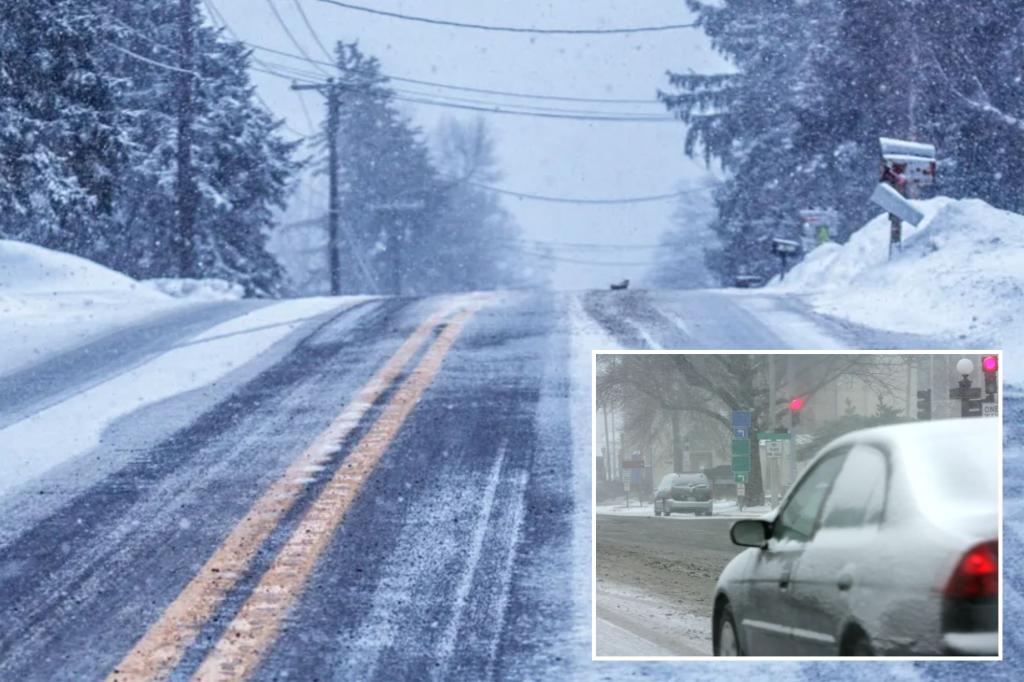A significant winter storm is poised to impact the heavily-trafficked northeastern corridor of Interstate 95, bringing widespread snow and dangerously cold temperatures. The FOX Forecast Center predicts snowfall accumulations of 1-3 inches from Washington, D.C. to Boston, with heavier amounts of 5-8 inches expected northwest of I-95. This system has the potential to deliver the largest snowfall of the season for a region grappling with significant snowfall deficits, with cities like Philadelphia and New York City lagging behind their typical winter accumulations by several inches. The combination of snow and plummeting temperatures has prompted a state of emergency declaration in New Jersey, with Governor Phil Murphy urging residents to prepare for below-zero wind chills and limit time outdoors.
The storm’s timing coincides with the Martin Luther King Jr. federal holiday, affording a reprieve from typical weekday traffic and allowing snow removal crews unimpeded access to roadways. Schools, banks, and other services will be closed for the holiday, further minimizing disruptions. However, the storm’s impact extends beyond travel concerns. The anticipated snowfall and subsequent frigid temperatures have necessitated adjustments to the upcoming presidential inauguration ceremonies in Washington, D.C. Breaking from tradition, most major inaugural events will be held indoors due to concerns about the brutally cold air following the precipitation. Preparations that had been underway for months for outdoor events, including the traditional parade and swearing-in ceremony, have been significantly altered.
The winter storm has placed more than 30 million people from the Appalachians to the Northeast under winter weather alerts, encompassing major metropolitan areas such as Boston, New York, and Philadelphia. Even Washington, D.C., anticipates 1-3 inches of snow before the inauguration ceremonies on Monday. Following the snow, temperatures are expected to plummet drastically. The high temperature in Washington, D.C. on Monday is forecast to be in the mid-20s, but by Wednesday evening, temperatures are projected to drop to near zero as an Arctic air mass envelops the eastern two-thirds of the United States. This frigid air mass is expected to bring below-average temperatures to an astonishing 300 million people nationwide.
The impending extreme cold poses a serious threat of hypothermia, prompting communities from the U.S.-Canadian border to Florida to prepare warming centers for those without adequate shelter. The severity of the cold necessitates proactive measures to ensure the safety and well-being of vulnerable populations. The combination of heavy snow and dangerously low temperatures creates a perilous situation, demanding careful preparation and vigilance from residents across the affected regions. Governor Murphy’s state of emergency declaration and his urgent message to residents underscore the seriousness of the situation and the need for proactive measures.
This widespread winter storm, impacting a densely populated region, has significant implications not only for travel and daily routines but also for major national events like the presidential inauguration. The decision to move inaugural events indoors highlights the disruptive potential of severe weather and the importance of prioritizing safety. The storm’s impact extends beyond immediate inconveniences, threatening the health and safety of millions with the potential for hypothermia. The widespread deployment of warning centers across a vast geographical area, from the northern border to the southern states, underscores the severity and extensive reach of this impending cold snap.
The confluence of heavy snow and record-breaking cold presents a formidable challenge for residents and authorities alike. The preemptive measures taken, such as the state of emergency declaration, school closures, and the establishment of warming centers, indicate a proactive approach to mitigating the risks associated with this severe weather event. The significant adjustments to the presidential inauguration further highlight the disruptive power of nature and the need for adaptability in the face of challenging circumstances. The widespread impact of this winter storm serves as a stark reminder of the importance of preparedness and community support during times of extreme weather.

